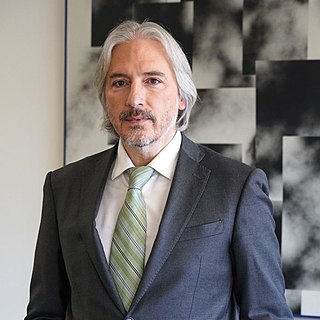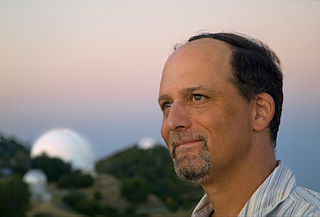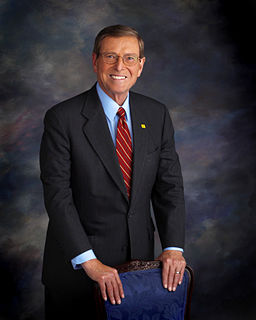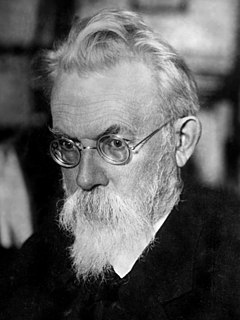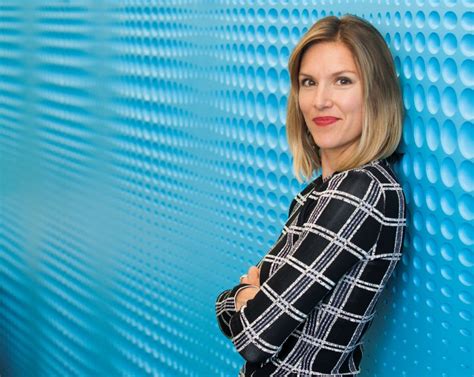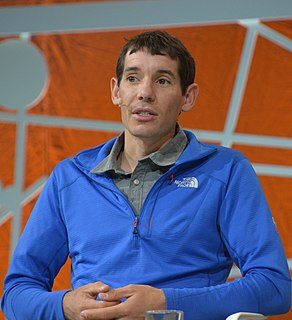Top 794 Solar Flares Quotes & Sayings - Page 11
Explore popular Solar Flares quotes.
Last updated on December 21, 2024.
People always think of technology as something having silicon in it. But a pencil is technology. Any language is technology. Technology is a tool we use to accomplish a particular task and when one talks about appropriate technology in developing countries, appropriate may mean anything from fire to solar electricity.
Already renewable energy advocates are noting that the 42 miles of above-ground right-of-way between Yosemite and the city could be fitted with enough solar panels to generate at least 40 megawatts per year - a proposal the San Francisco Public Utilities Commission has never seriously considered because they currently aren't required to do so.
Ecology also teaches that all life on earth can be viewed as a competition among species for the solar energy captured by green plants and stored in the form of complex carbon molecules. A food chain is a system for passing those calories on to species that lack the pant's unique ability to synthesize them from sunlight.
Our neighborhood - this solar system, the cosmos, actually - is so much more vast and amazing than the paltry headlines, insanity, and politics crammed at us daily as so-called news. The beauty of the hood and discoveries that await us are deserving of our attention and mandatory to our survival as a species.
I am much occupied with the investigation of the physical causes [of motions in the Solar System]. My aim in this is to show that the celestial machine is to be likened not to a divine organism but rather to a clockwork ... insofar as nearly all the manifold movements are carried out by means of a single, quite simple magnetic force. This physical conception is to be presented through calculation and geometry.
The good news is that we've seen in recent years significant reductions in the cost of solar panels and wind production. We know how significant an impact we can have by moving towards energy efficiency and transforming our transportation system. So we know what has to be done. We have to develop the political will to do it, and, as president, this would be an issue of huge concern to me.
I don't think Brian Cox does 'The Wonders of the Solar System' because he believes the world would be a better place if people understood about the rings of Saturn; I just think he finds physics extremely interesting. It brings him joy, and he wants to spread the love. I feel the same about economics.
It changes your perspective to be able to look out the window and see the planet. One of the thoughts that I had when I first got up here was, 'We really do live on a planet, and we are in a solar system, and we are flying through space right now.' I mean, this is something that you know, obviously, but to see the planet - it's amazing.
The cosmic game changed forever in 1992. Before then, logic told us that there had to be other planets besides the nine (if you still count poor Pluto) in our solar system, but until that year, when two astronomers detected faint, telltale radio signals in the constellation Virgo, we had no hard evidence of their existence.
The Moon is a ball of left-over debris from a cosmic collision that took place more than four billion years ago. A Mars-sized asteroid - one of the countless planetesimals that were frantically churning our solar system into existence - hit the infant Earth, bequeathing it a very large natural satellite.
Already renewable energy advocates are noting that the 42 miles of above-ground right-of-way between Yosemite and the city could be fitted with enough solar panels to generate at least 40 megawatts per year - a proposal the San Francisco Public Utilities Commission has never seriously considered because they currently aren’t required to do so.
I was inspired to see leaders from Paris, New York City, San Francisco and Vancouver, B.C. rolling up their sleeves to create clean and safe transportation systems; make homes and buildings efficient, comfortable and affordable; and ensure more of our energy comes from clean sources like wind and solar.
We still don't know for sure what the trigger was, but since we've discovered meteorites with supernova dust, we do know that a violent explosion rocked our cosmic neighborhood at the time of our birth, and it's quite possible that without it, our stable, stately solar system would never exist at all.
In the next century or two, we humans will have planet-finder telescopes that span our solar system with mirrors strewn from here to Jupiter, giving us enormous angular resolution so we can do the kind of science that a self-respecting advanced civilization ought to be doing. We should someday be imaging the continents on other planets. We can't do that yet, but aliens can do that already, so they know we are here.
Energy legislation in Congress and the focus on energy legislation is first and foremost about creating good jobs. In Florida, where solar and biofuel and wind and so many other areas are important and so many in the private sector continues to pursue these, we need policies that will encourage that.
The price of a solar panel keeps plummeting, which is why it is so absurd to watch Donald Trump try to somehow revive the expensive and dirty coal industry. We are ready to go, and now we have got I think what is going to be the flag around which progressives rally. Nothing less than 100 percent of renewable energy will do.
I do not expect NASA to go out and build settlements and colonies. I do not expect them to give SpaceX all the money needed to colonize Mars. I do not expect them to realize the future of humanity is contingent on harvesting the wealth of the solar system overnight and suddenly subsidize my asteroid mining project.
Shelby believed that love was like a solar eclipse - breathtakingly beautiful, absorbing, and capable of rendering you blind. She had not necessarily gone out of her way to avoid a relationship, but she hadn't wanted on either. It was called falling in love for a reason - because, inevitably, you crashed at the bottom.
There are 60 million generators in Nigeria. The generator owners and distributors have a strong incentive to not encourage the distribution of solar and other alternative energies, even though it's better for the country, it's better for people. As a world, we've got to get more serious about confronting those obstacles. This knows no culture, no race, no ethnicity.
We need to send hundreds of millions of dollars down to our public high schools, vocational colleges, and community colleges to begin training people in the green-collar work of the future - things like solar-panel installation, retrofitting buildings that are leaking energy, wastewater reclamation, organic food, materials reuse and recycling.
If you were to stand on an asteroid in the main belt of asteroids between Mars and Jupiter in our solar system, you might be able to see one or two asteroids in the sky, but they would be very far away and very, very small. So you wouldn't have this 'dodging through tons of rocks' business you get in the movies.
While civilization is more than a high material living standard, it is nevertheless based on material abundance. It does not thrive on abject poverty or in an atmosphere of resignation and hopelessness. Therefore the end objectives of solar system exploration are social objectives in the sense that they relate to, or are dictated by, present and future human needs.
The universe is an asymmetrical entity. I am inclined to believe that life as it is manifested to us must be a function of the asymmetry of the universe or of the consequence of this fact. The universe is asymmetrical; for if one placed the entire set of bodies that compose the solar system, each moving in its own way, before a mirror, the image shown would not be superimposable on the reality.
We can learn from all around the world. Germany, particularly, has been successful with rooftop solar generation. Other countries like Norway and Sweden have done work on it. Some of them have done offshore wind projects. So we're looking at learning from the best from all across the world. My approach is to get the best out of each one.
I urge individuals around the world to stand up, and ask local leaders, if they haven't already, to pledge to purchase cleaner cars, build green facilities, and buy green power like wind or solar energy. Our actions may determine if we become a casualty in the war for a habitable planet for generations to come.
There's no doubt that the search for planets is motivated by the search for life. Humans are interested in whether or not life evolves on other planets. We'd especially like to find communicating, technological life, and we look around our own solar system, and we see that of all the planets, there's only one that's inhabited.
I do have fantasies of buying a helicopter and a lot of machine guns, but I don't know if I can do that. I'd like to have a lot of weapons, grenades and things. And I want to have a solar energy machine. And I want to have a sunken garden with a glass roof. I guess that's about it for now. I have a few other wants but I can't remember them.
The radiations that pour upon the earth cause the biosphere to take on properties unknown to lifeless planetary surfaces, and thus transform the face of the earth. Activated by radiation, the matter of the biosphere collects and redistributes solar energy, and converts it ultimately into free energy capable of doing work on earth.
A lot of the creature comforts and the things we take for granted, are not sustainable, especially at current population levels. And so, it's not just simply a matter of changing over to solar. It's a matter of changing our philosophies. Of learning to live, more or less, mid- or post-apocalyptic, whatever apocalyptic means.
The next most dangerous thing [after nuclear proliferation] is probably... global warming, and then, right behind that are overpopulation -- we need to get serious about family planning-and trying to alleviate poverty, to get clean, renewable energy, probably with solar panels to the billion and a half people in the world who don't have access to electricity.
Consumers used to think they had to compromise with solar. It was, 'Okay, I'm doing the right thing for the environment; it's cool to see the panels. I have to compromise on the cost and convenience side.' And now they no longer have to. On the cost side, it's cheaper, and on the convenience side, we set it all up.
We are like tenant farmers chopping down the fence around our house for fuel when we should be using Nature's inexhaustible sources of energy - sun, wind and tide. ... I'd put my money on the sun and solar energy. What a source of power! I hope we don't have to wait until oil and coal run out before we tackle that.
Chhath is made up of two Hindi words - 'Chah,' indicating six stages and 'Hath' representing the act of austerity. The vratti observing this strict fast is believed to acquire solar energy in six different stages. It is one of the most scientific puja known to mankind and offers a host of health benefits.






